What happens when you wake up one day in your comfortable, climate-controlled, corporate career in middle management and say, “Enough! Money isn’t everything. I want to make a difference in our world”?
This stream of thought launched 47-year-old Delta Donohue, who has shared stories on our site of her time in India, into an adventure that would last over seven years and involve volunteering in an orphanage in India, elephants and camels, starting a social enterprise that partners with village women, and more elephants and camels – along with several monkeys and one particular cow.
The First Taste Belongs to the Gods is a deeply personal collection of stories and poetic reflections chronicling these years of going back and forth to India and the interior journey it prompted. This unconventional, poignant travelogue will have you laughing, crying and asking yourself, “What life do I dream of?”
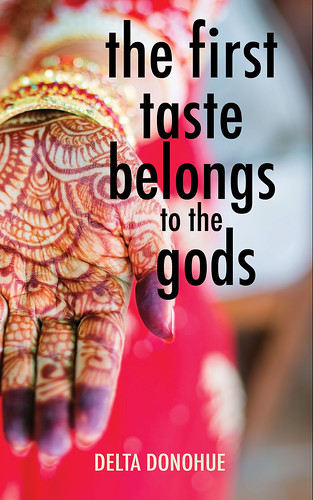
From traffic to friendships, from chaos to trust and love, from paying attention to being open to change, with sides of patience, cows and camels and truck drivers, this book is a delight...a treat for all your senses.
With a sense of humor and a knack for storytelling, Donohue shares acquired cultural knowledge from years of working with Anoothi, an organization in India that she has worked with for years. The importance of connection, of learning and sharing stories, of the awe of acknowledging each person's part in humanity, and of the joy and challenges in cross-cultural living come alive on these pages, and bring us into the very important work of Anoothi, as well as the wide open hearts of Donohue and Anoothi co-founder Jaimala Gupta. Reading this? It will change your life. Highly, highly recommended.
Delta Donohue is a Colorado speaker, poet, playwright, and author. Donohue is most known for her show Unfolding: A Journey Through the Middle of Life, where she performed to sold-out crowds. For more information, visit her website www.DeltaDonohue.com.
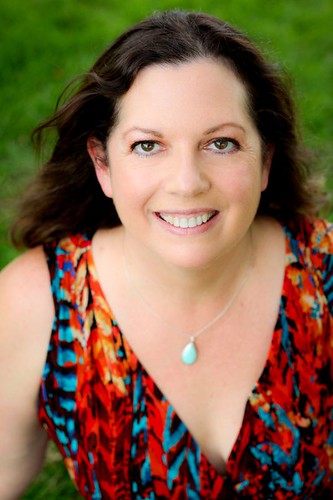
We were lucky enough to catch up with Delta, and ask about her book, inspiration, India travel tips, and more. Here’s what she had to say…
Please tell us about your book, The First Taste Belongs to the Gods...
The First Taste Belongs to the Gods is not your typical travelogue. It doesn’t identify hotels to visits, restaurants to try, or the best routes to take. Rather, it deals with an interior journey spanning over 7 years of going back and forth to India working with village women and volunteering with orphaned and abandoned children.
I had a comfortable career, solidly entrenched in corporate America, but just knew there was more out there. There was a little voice telling me that I wanted to work with women, that I wanted to travel and that I wanted to make a difference. This thought, which became a loud nagging voice, ultimately led to me quitting my job and traveling halfway around the world to volunteer in a children’s home.
I became friends with the founders of the NGO that ran the home, and within three months, we had launched a social enterprise/microcredit (Anoothi) that partnered with village women and helped them gain sustainable, revenue generating skills. Suddenly, my life had a totally new trajectory. The First Taste Belongs to the Gods uses stories and poetic reflections to describe my journey. It’s my hope that the book encourages people to dream and lean into what might be calling them to say YES to.
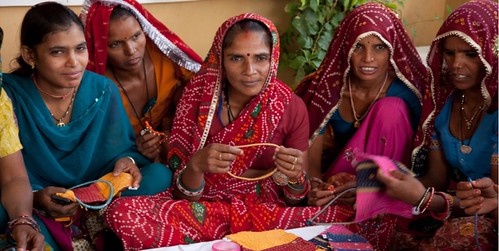
What inspired you to write this book?
Practicality! At least that’s the first answer. Like so many people, I’ve longed to write a book. I’ve started and stopped many times, never feeling like I had a true topic of substance to write about. In 2017, I finally committed to getting a book done, no matter what! I started thinking about all the writing I had done and the many different topics I’d explored. I realized how many presentations I had given about my trips to India and that I probably had half of the book already done, at least in draft form. From there it was simple to outline the rest of the book and get busy.
Once I committed to the idea, I fell in love with the book! I wanted people to experience India, the women and children the way that I had. I also wanted them to experience some of the bumps in the road that I encountered. And who doesn’t love stories that might include camels, elephants, or monkeys?
What tips do you have for people traveling to India?
India is such a vast country. My recommendations would include:
• Limit the trip to one of two areas. I know that seems like you may not be making the most of the trip, but there is so much to do and see in all of the big cities.
• If at all possible, have the trip be at least three weeks in length. I’ll explain this more answering the next question.
• At this point, because of the pollution, bypass Delhi, except as a connection point.
• Examine the need to take anti-malarial medicine. There are many areas in India where malaria is not prevalent. Over the years, I have stopped taking any anti-malarials working in and around Jaipur. It’s just not needed. Of course, disclaimer here, check with your health care provider and make your own informed decision.
• Be aware that parts of India are quite conservative. Wearing a salwar kameez has worked everywhere I have traveled. You can have these made, in-country, by a local tailor within a day and usually without spending much money. I also always travel with a scarf, not only to be respectful in some locations, but to cover my face/mouth when traveling in some open-air vehicles (tuk-tuks, jeeps, etc.).
• Monkeys, while cute, can be quite mischievous. Take care when visiting the monkey temples or strolling through villages. They are quite adept at stealing the fruit from your hand or snatching a hanging handbag. The theft of a purse is not some “plot” calculated by people. You can watch the monkeys scamper up to a rooftop and start tearing the purse apart to see what is inside.
• Be prepared for two-tiered pricing at many of the tourist attractions. Local Indians pay a very cheap price and foreigners pay a more expensive price.

Intercultural adjustment for living (and visiting) India - how can travelers best enjoy their time there?
• As mentioned above, I strongly recommend your trip be at least three weeks long. India is a shock to the senses. It is a country of over 1 billion people and for me, at least, it takes a bit of time to settle into the country – to get used to the volume of people, the noise, the sounds and smells. It is also a country where nothing is filtered. You see it all as you wander the streets. The times my trips have been 2 weeks or less, I have never lost the sense of disorientation. When I stay longer, I adjust and begin to see the true beauty of India and its people.
• I wish travelers would leave their 4 or 5 star hotels and experience more of the villages, or even the slums. I have met some of the most wonderful people (and some of the happiest) in rural settings.
• Safety. I feel quite safe moving about India. However, I have traveled there extensively and have gotten a better sense of where/when I feel safe traveling alone. There are MANY times where I travel certain areas only with my India colleagues/friends. I would encourage people to talk with their hotel staff for advice. Also, it is often wisest to hire a driver for the day (or the entire trip). It makes logistics much easier. In addition, they can accompany you on any walking parts of the trip if you are uneasy.
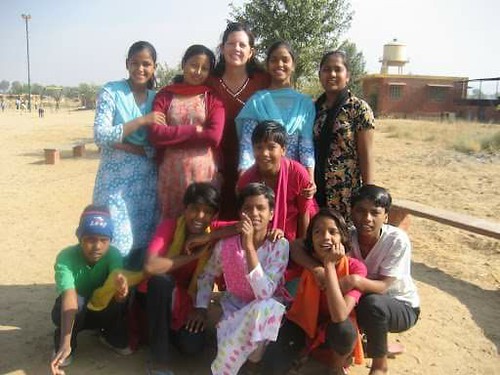
Delta's first visit to India
It must have been very difficult to capture India - what were the joys and challenges of writing about your experiences there?
I struggled finding the balance between the joy and the pain, the ugly and the beautiful. Each day, of every visit, was filled with this challenge and I wanted to represent it accurately in the book. It is easy to focus on the stories that are painful but there were also moments of great joy. Every visit into the slums, I was taken aback by how happy the people seemed. Prior to my travels, I had equated the word poverty with unhappiness. India taught me that they are not always linked. Many of the poorest Indians I met, while wanting to raise their economic status, talked about how happy they were and how grateful they were for what they had.
It was challenging to be completely honest—to acknowledge there were times I felt lonely and invisible, that I could be quite judgmental, etc. I had a tendency to want to present only the positive version of myself, as this was, and continued to be, the opportunity of a lifetime. Plus, no one excitedly exposes their warts. But it was part of the journey and hopefully I represented that side of myself as well as the positive sides.
What's up next for you?
Ah, always the question.
First I am learning the ins and outs of marketing this book. That’s a journey in itself.
I will be closing Anoothi US at the end of the year. I’ve spent the last 10 years going to markets, social justice fairs, alternative gift markets, etc. and selling the wares of the Anoothi women. I am passing that torch on to some others that are sprinkled around the United States. I want the joy of focusing on telling the stories of the women.
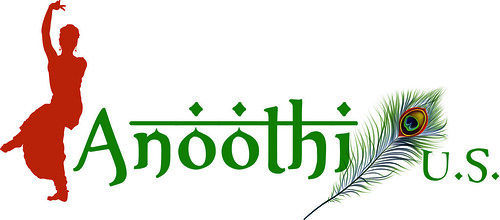
In that vein, it is my hope to return to India in November of 2018 for a 6-8 week trip and begin the process of writing the history of the Anoothi women.
This would be done in partnership with Jaimala Gupta (co-founder of Anoothi and founder of the NGO Vatsalya). She would focus on the historical and current political/economic landscape and how it impacts women and I would tell the stories of the Anoothi women and how being involved with the business organization has changed their lives.
Additionally, I am working on a book of stories about my experience teaching ESL to adult immigrants. I am a firm believer in the power of words and language to change peoples’ lives. I get to witness this every day in my teaching. I also hope to turn this into a performance piece. I think if more Americans had the opportunity to witness the experience of immigrants there would be less fear, less resentment. A bit of the “walk in another person’s shoes” idea.
Is there anything else you'd like to share?
You are NEVER too old.
I’ll end with a poem that has become a bit of an anthem in my life and certainly helped me lean into what was calling me to say YES.
What If
What if
Just for a moment
We stop
And allow ourselves to believe
That we are perfect
Not just enough
For that suggests a limitation in itself,
Perfect
Unimaginably dazzling
Clothed in potential and possibility
Howling with joyous abandonment
For the richness of the landscape
That frames our lives
Dancing every step
Whether winds are quiet or ferocious
Days turbulent or still
What if
Just for a moment
We choose
To say
YES
Pin for later:

